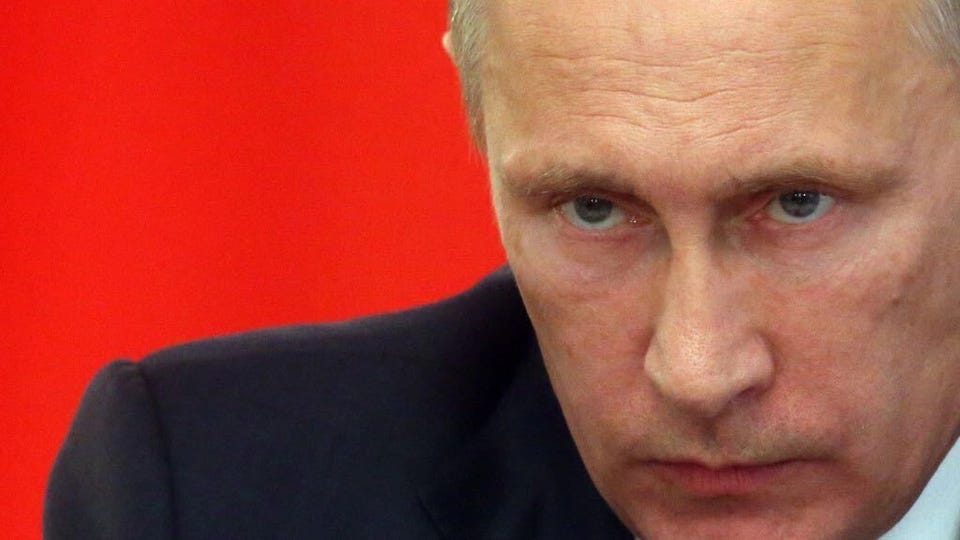30 March 2022
Washington DC
“Putin is a mad man”. Saddam, Kim Jong Il & Un, the Ayatollah, bin Laden, Stalin, and Hitler - all mad men. This is the default assumption made by experts and lay people alike when an adversary leaders says or does something we do not understand. By writing off a leader as “mad” we free ourselves from the obligation to evaluate their strategic intent - the ultimate intelligence question in any conflict. This cedes decision making advantage to the enemy.
Almost all leaders are afflicted with various forms of narcissistic personality disorder. Churchill was a classic case of the charismatic leader driven by undeniable levels of narcissism. One of his many bon mots was this gem: "I am ready to meet my Maker. Whether my Maker is prepared for the great ordeal of meeting me is another matter." Because possession of narcissistic personality disorder by a charismatic leader does not explain Adolf Hitler, psychologists had to create new categories of understanding. A key differentiator became whether the narcissism resulted in ‘destructive’ ideations and behaviors.
Even a leader displaying a psychotic destructive narcissistic personality disorder, does not mean they cannot distinguish fantasy from reality, or that they are subject to uncontrollable impulsive behavior, and lose the ability to engage in reasoning. That is the definition of ‘mad’ used in this book (I don’t want to get into arguing over how many angels can dance on the head of a pin).
The key is the capacity for logical reasoning.
There is no doubt Vladimir Putin operates from the basis of logical reasoning. He is not a mad man but perfectly logical. Every foreign adventure before now, from Chechnya to Syria, even in Ukraine itself (2014), resulted in a win for Putin. The logical inference was this Ukraine operation would be easy. Kabul was an America foreign policy disaster. The bungling of that operation invited Putin to assess that the US was spent after forever wars and Biden stupid and weak. It was logical for Putin to think the time had come to “finish the job” in Ukraine.
Putins top foreign policy goals have been to divide the EU and NATO. Putin’s Syria operations delivered the incredibly valuable "refugee weapon" which was used with powerful effect to divide Europe. Brexit was a result. So too was the rise of anti-democratic forces across the EU (and in America) encouraged and paid for by Russian Intelligence. Putin assumed that the Ukrainian "refugee weapon" would further divide Europe. Europe and America were also showing signs of division. Putin judged that a war in Ukraine would throw more friction into that relationship with both sides blaming the other for inaction over Putin’s new war.
Likewise, Putin was not afraid of sanctions because Russia was already sanctioned and still doing quite well. He assessed that a divided EU and NATO would never have the will to substantially enhance the existing sanctions regime. Besides, Western Europe needs Russian energy products. They will buckle to infighting the moment supplies start to diminish.
Finally, he thought military operations in Ukraine would be a cake walk.
This is a perfectly logical train of thought backed by strong historical evidence. Before the war, no one was predicting Russian military failure, the unification of the EU and NATO, lightening and almost total air-tight sanctions, and continent-wide sympathy for, and welcoming of, 5+ million refugees.
Putin miscalculated. He is not mad. Having various personality disorders does not make someone violent and destructive - even a “world leader”, although Putin does not deserve that label other than in the most technical terms. War criminal is more accurate.
The next question is what does a destructive narcissistic personality do when they know they are losing an unnecessary war of choice? The context of that decision is a fast growing risk to regime survival, via a crashing domestic economy, blocked access to foreign reserves, mounting body bags (that can only be hidden for so long), the destruction of the best parts of your military (leaving your country vulnerable to internal and external threats you have created), fast approaching conscript deadlines, and an enemy with three key assets: authentic charismatic leadership, a people with an indomitable will, and the support of almost the entire world.
What if the only thing that “leader” has going for them is nuclear weapons? When does it become rational to use them?
This will be the subject of the next posting here on Unconventional Nuclear War.





Adam, that’s a well written cogent synopsis pointing out the peril of assuming Putin is mad. I think he based his invasion on some bad Intel and bad assumptions. The question that comes to my mind is whether or not, going forward, he will be receiving hard truths or continue to make his advisors nervous and fearful and solicit responses that only agree with his pre-conceived thoughts.
Looking forward to the next post, and bracing myself for contemplating some fairly dark scenarios!